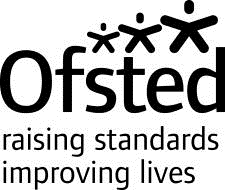Ofsted

Inspection of Southview School
Conrad Road, Witham, Essex, CM8 2TA
|
Inspection dates: |
13 and 14 September 2022 |
|
Overall effectiveness |
Outstanding |
|
The quality of education |
Outstanding |
|
Behaviour and attitudes |
Outstanding |
|
Personal development |
Outstanding |
|
Leadership and management |
Outstanding |
|
Early years provision |
Outstanding |
|
Sixth-form provision |
Outstanding |
|
Previous inspection grade |
Not previously inspected |
What is it like to attend this school?
Southview School is a thriving, joyous place to learn. Pupils are inspirational, happy and delightful to speak with. Before pupils join the school, staff work with families, so that pupils make an excellent start at school. Leaders are highly ambitious for pupils. Pupils make significant gains in the knowledge, confidence and skills they need to become independent. Pupils learn to understand themselves and develop vital skills for future life.
Pupils are proud of their contributions to the school community. They explained how they raise money for charities.
Pupils who are unable to attend school for long periods, receive a programme of online learning. This has been highly successful for helping pupils to keep contact with school and continue with their learning. This means that pupils return to school smoothly when they are ready.
Pupils’ behaviour is exemplary. They are respectful of each other and adults in the school. Pupils who have experienced bullying in previous schools say that it does not happen at Southview. Pupils trust adults to help when concerns arise.
Staff are highly skilled at adapting the curriculum to meet pupils’ very different needs. Staff teach pupils how to communicate about their learning and their emotions. Consequently, pupils make excellent progress and achieve well.
What does the school do well and what does it need to do better?
All leaders, including governors, communicate a clear vision, which is evident in the teaching of the curriculum. Leaders explained that the ‘pillars’ of the curriculum - communication and language, and pupils’ physical well-being - are at the heart of all learning. From early years to sixth form, pupils’ needs are met exceptionally well.
Leaders use what they already know about pupils, including information from pupils’ education, health and care (EHC) plans, to design a curriculum for each pupil.
Leaders have aligned the work of skilled specialists to that of teachers. They routinely participate in planning, target setting and assessing pupils. Therefore, adults gain a detailed knowledge about each pupil’s special educational needs and/or disabilities (SEND). Teachers make skilful use of this information to make sure that pupils receive an exceptionally high quality of education.
Important information is revisited several times before new learning is introduced. Teachers make sure pupils have a solid grasp of knowledge of what has been taught before moving the learning on. Adults place considerable emphasis on developing pupils’ knowledge of communication and language.
Leaders have designed an early reading curriculum that precisely targets pupils’ wide range of cognitive and physical needs. In early years, adults are highly skilled at choosing the most appropriate teaching strategy to teach sounds. Staff expertly adapt pupils’ targets, so that pupils make strong progress over time.
Pupils are able to gain a broad understanding of the world around them through history, literature and geography. Texts are chosen that link to each area, so that pupils can quickly make connections and develop a deeper understanding. The work on 17th century witchcraft, for example, has provided pupils with a strong understanding of their local community, the monarchy and politics. Knowing all of this then supported them in their English work on ‘Macbeth’. Pupils make exceptional progress over time because teachers help pupils make connections that link with pupils’ prior learning.
Leaders develop pupils’ love of reading by choosing books that are meaningful to pupils. Pupils read books that help them to understand their uniqueness, such as ‘Super Duper Me’ and ‘Roll with It’. Pupils spoken with articulate a good understanding of inclusion and equality. They demonstrate a sense of justice and strong sense of awareness of themselves and their future. Leaders encourage pupils to have high aspirations. Pupils develop in an environment that is safe and highly inclusive.
Pupils are supported by experienced staff, who give pupils high levels of respect, care and kindness. This includes learners who require high levels of intimate care.
In the sixth form, the curriculum is tailored precisely to students’ needs. This means they are exceptionally well prepared for the next stages of their lives. Some students gain accreditation and qualifications. They receive a very well-planned programme of careers advice and work experience to help them to plan for their futures.
Students enjoy their enterprise work. For example, they work together to make posters for their café, plan menus and make the food to sell. Typically, all the pupils who leave the school go to day care, college or residential schools.
Leaders demonstrate an unwavering commitment to support pupils beyond the school’s curriculum. Through their work with local schools and employers, leaders provide bespoke support and learning, so that pupils gain relevant skills and knowledge to help them follow their interests.
Parents are overwhelmingly appreciative of what the school provides for their children. They typically commented about the high level of care and the excellent progress their children have made.
Staff feel very supported in managing their workloads. All staff value the professional training that enables them to be highly effective and integral members of the school team.
Safeguarding
The arrangements for safeguarding are effective.
Adults use appropriate resources to teach topics about relationships. Pupils know how to have safe and healthy relationships in preparation for adult life.
Leaders have secure systems in place to keep children safe. Staff constantly update their safeguarding knowledge, so they know the signs that indicate a pupil may be at risk of harm.
Staff report and record any concerns promptly. Leaders work collaboratively with the school family worker and external partners to get pupils and their families the help they need quickly.
Leaders carry out all the necessary employment checks on staff and safeguarding checks on visitors to the school.
How can I feed back my views?
You can use Ofsted Parent View to give Ofsted your opinion on your child's school, or to find out what other parents and carers think. We use information from Ofsted Parent View when deciding which schools to inspect, when to inspect them and as part of their inspection.
The Department for Education has further guidance on how to complain about a school.
Further information
You can search for published performance information about the school.
In the report, 'disadvantaged pupils' refers to those pupils who attract government pupil premium funding: pupils claiming free school meals at any point in the last six years and pupils in care or who left care through adoption or another formal route.
|
School details |
|
|
Unique reference number |
144956 |
|
Local authority |
Essex |
|
Inspection number |
10241326 |
|
Type of school |
Special |
|
School category |
Academy special sponsor led |
|
Age range of pupils |
3 to 19 |
|
Gender of pupils |
Mixed |
|
Gender of pupils in sixth-form provision |
Mixed |
|
Number of pupils on the school roll |
79 |
|
Of which, number on roll in the sixth form |
11 |
|
Appropriate authority |
The Hope Learning Trust |
|
Chair of trust |
Michael Andrews |
|
Headteacher |
Julian Cochrane |
|
Website |
|
|
Date of previous inspection |
Not previously inspected |
Information about this school
- Southview School is a school for pupils with complex physical and neurological disabilities.
- The school joined Hope Learning Trust in 2017.
- All pupils have an education, health and care (EHC) plan.
The school provides early years education from age three, as well as sixth-form provision for students aged 16 to 19
Information about this inspection
The inspectors carried out this graded inspection under section 5 of the Education Act 2005.
- This was the first routine inspection the school received since the COVID-19 pandemic began. Inspectors discussed the impact of the pandemic with school leaders and have taken that into account in their evaluation.
- Inspectors held meetings with the headteacher, teachers responsible for leading curriculum subjects.
- A meeting was held with the chief executive officer of the trust, and a telephone meeting was held with one member of the local governing body.
- Inspectors took account of a wide rage of information, including the school’s improvement plans and records of safeguarding concerns.
- Inspectors also reviewed school policies, documents and records relating to safeguarding, including the single central record.
- Inspectors observed pupils’ behaviour in lessons and around the school site. Inspectors also reviewed attendance and other information provided by school leaders.
- Inspectors took account of 31 responses to the Ofsted staff survey and took into account the views of parents expressed in 19 responses to Ofsted’s Parent View survey, including 11 free-text responses.
- The lead inspector also considered additional email evidence submitted.
- The subjects covered i depth as part of this inspection were English, including early reading, mathematics and personal, social, health and economic education. In each subject, inspectors spoke with subject leaders, teachers and pupils. Inspectors visited lessons and looked at pupils’ work alongside pupils’ individual EHC plans.
Inspection team
|
Cindy Impey, lead inspector |
His Majesty's Inspector |
|
Lynn Ayling |
Ofsted Inspector |
